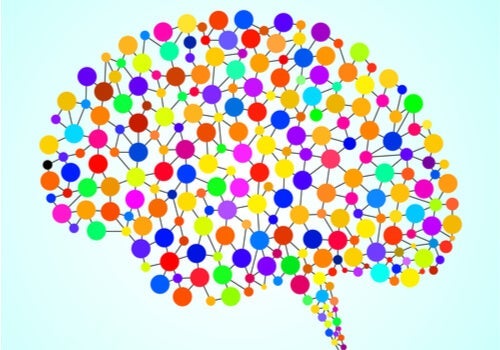(Exploring Your Mind) Is there a relationship between psychopathology and creativity? Is it necessary to have a specific set of symptoms to be a “creative genius”? In today’s article, we’re going to discuss the study of the relationship between these two. Also, we’ll tell you about the role of neuroscience in this study.
Related ‘Microdosers’ of LSD and Magic Mushrooms are Wiser and More Creative
by Staff Writer, November 17th, 2019
The relationship between psychopathology and creativity has been the subject of much interest for hundreds of years. For instance, Aristotle already knew that the most outstanding scientists, artists, and other highly creative people had a tendency to melancholy. In fact, creative people such as Ernest Hemingway, Virginia Woolf, Edgar Allan Poe, Vincent Van Gogh, and Edvard Munch had some form of mental illness and it had to do with their creative process.
Even today, the study of the relationship between psychopathology and creativity remains arduous and difficult.
- First of all, because experts have yet to find a scientific and formal method of measuring something as intangible as creativity to truly learn more about this relationship.
- Second of all, because mental disorders are highly variable. And as they say in the clinical world “there are as many psychoses as there are people”.
- This brings us to the third reason that justifies the difficulty of measuring this relationship. Although there have been many neuroscientific advances, the human psyche still remains a great mystery.
“The problem with the world is that the intelligent people are full of doubts, while the stupid ones are full of confidence.”
-Charles Bukowski-
Buy Book Awakened Empath: The Ultimate Guide to Emotional, Psychological and Spiritual Healing
The study on the relationship between psychopathology and creativity

As a starting point, we can say that the study of the psychopathology and creativity relationship began after the 17th century. This was possible after accepting that the first variable could be susceptible to measurement. In other words, creativity was no longer an intangible variable, without the possibility of scientific study.
Authors such as Galton, Silverman, and Brain, among others, postulated from a naturalistic perspective that creativity wasn’t an extraordinary phenomenon but a common one with biological foundations. Although this now seems obvious, it wasn’t yet considered until they came along. In addition, they observed that people with high creative performance often had symptoms of depression or bipolar or neurotic disorders.
However, they soon concluded that this relationship needed more rigorous study, and not only by attending case studies. Since then, there are three ways or methods that study the influence of psychopathology on creativity:
- Through biographical studies of creative people throughout history. The results provided by this method are neither precise nor conclusive. They’re quite interesting, however.
- Analyzing the psychopathology of creative people. Through the application of inventories, scales, and clinical metrics to people in creative professions. The intention is to determine whether or not there’s a higher prevalence of mental disorders. And, if so, under which category to place them (affective or psychotic, among others).
- By studying creativity in psychiatric patients. The basis of this method lies in the principle that’s opposite to the previous one. If the first one looks for psychopathology in creativity, this one seeks creativity in psychopathology. However, the vast majority of research focuses on patients with bipolarity or schizophrenia.
Buy Book Educating Intuition [Science Behind Our Innate Sixth Sense]
What does neuroscience say about this relationship?

Researchers conducted several neuroscientific studies over the past decades to try to determine a relationship between these two variables.
Although the results are quite diverse – and sometimes even contradictory – they indicate that “there’s an association with mental illness and or obvious behavior disorders” (Escobar and Gómez-González, 2006). In fact, these studies link creativity with alcoholism, suicide, major depression, bipolar disorder, schizophrenia, or cerebral dysfunction deficits (epilepsy, autism, etc.).
However, we could say once again that this relationship is still inconclusive. There’s currently no clear consensus among experts. At the neuroanatomic level, there’s a relationship between creativity and the functioning of the prefrontal cortex, which is responsible for higher cognitive functions. And, also to the limbic system that manages the physiological responses to emotional stimuli. However, experts point out that the key is in the flow of information that “runs” through the brain regions that are involved in creativity.
Thus, we can conclude that, although there’s still a long way to go, creativity is definitely affected in those mental disorders in which the mentioned structures become altered. Even so, mental disorders aren’t a determining factor or enough to be creative.
Stillness in the Storm Editor: Why did we post this?
Psychology is the study of the nature of mind. Philosophy is the use of that mind in life. Both are critically important to gain an understanding of as they are aspects of the self. All you do and experience will pass through these gateways of being. The preceding information provides an overview of this self-knowledge, offering points to consider that people often don’t take the time to contemplate. With the choice to gain self-awareness, one can begin to see how their being works. With the wisdom of self-awareness, one has the tools to master their being and life in general, bringing order to chaos through navigating the challenges with the capacity for right action.
– Justin
Not sure how to make sense of this? Want to learn how to discern like a pro? Read this essential guide to discernment, analysis of claims, and understanding the truth in a world of deception: 4 Key Steps of Discernment – Advanced Truth-Seeking Tools.
Stillness in the Storm Editor’s note: Did you find a spelling error or grammatical mistake? Send an email to [email protected], with the error and suggested correction, along with the headline and url. Do you think this article needs an update? Or do you just have some feedback? Send us an email at [email protected]. Thank you for reading.
Source:
https://exploringyourmind.com/psychopathology-and-creativity/


Leave a Reply